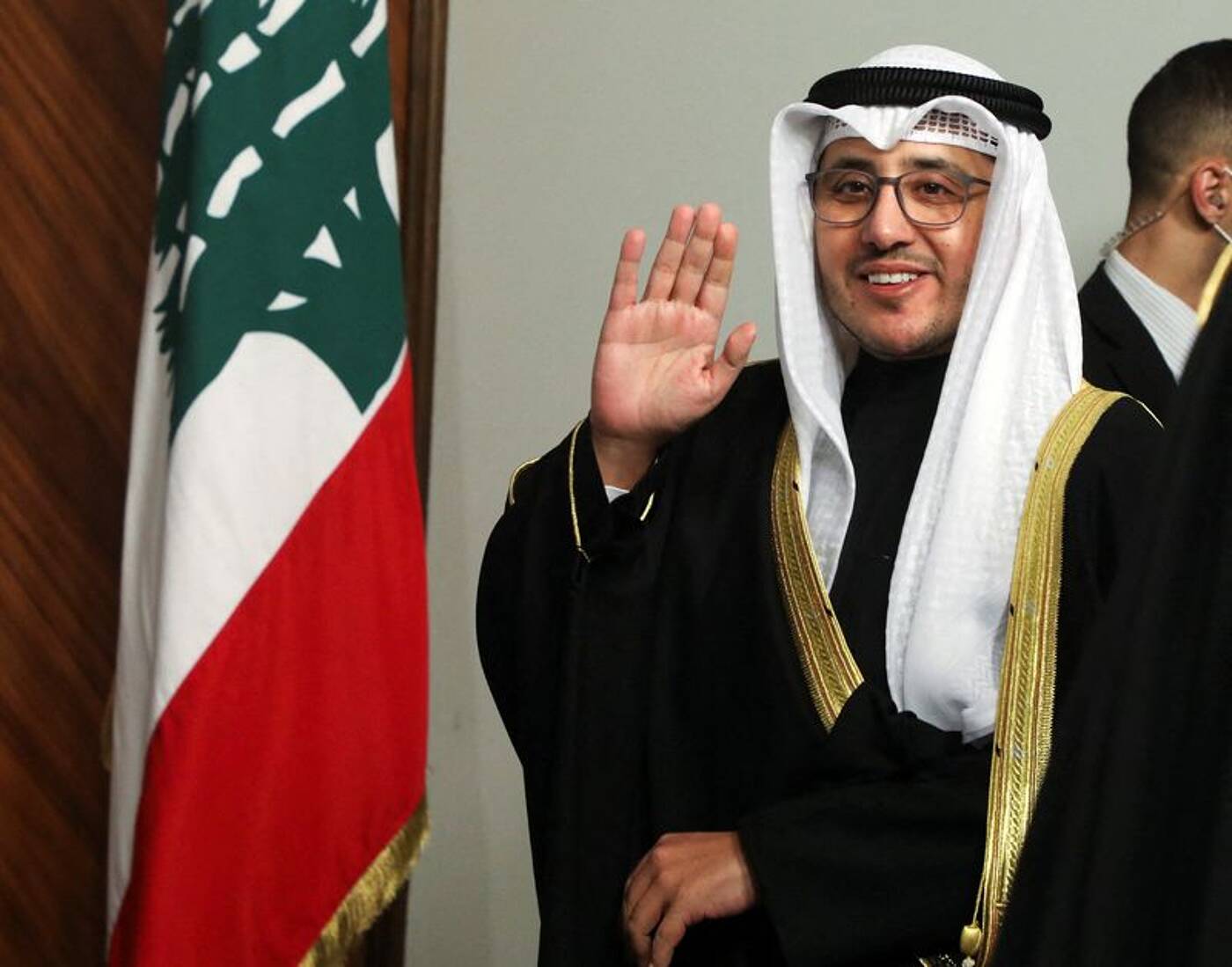
BEIRUT (Reuters) -Kuwait’s foreign minister said on Sunday Lebanon must not be a platform for hostile acts or words toward Gulf Arab states, an indirect call for curbs on the Iran-backed group Hezbollah in order to improve strained ties. Kuwaiti Foreign Minister Sheikh Ahmad Nasser al-Mohammad al-Sabah spoke after meeting President Michel Aoun in Beirut, during the first visit https://www.reuters.com/world/middle-east/lebanons-pm-meet-kuwaiti-foreign-minister-beirut-2022-01-22 to Beirut by a senior Gulf Arab official since a diplomatic rift last year. Sheikh Ahmad said on Saturday he had delivered confidence-building proposals to Prime Minister Najib Mikati, and that his trip was coordinated with Gulf states. “We asked that Lebanon not be a platform for any aggression – verbal or actual,” Sheikh Ahmad said after meeting Aoun. “I presented ideas and thoughts … And we are awaiting a response,” he added.
Diplomatic sources told Reuters that among the 12-point proposals was that Lebanon commits to the 1989 Taif Agreement that ended Lebanon’s civil war, tightens border controls to prevent drug smuggling to the Gulf and steps up security cooperation. The Gulf initiative expressed hope that Beirut will respond by end of the month during a meeting of Arab foreign ministers in Kuwait. Lebanon’s ties have long been strained by the influence of the heavily armed Shi’ite group Hezbollah, and were plunged into a new crisis in October by comments from a former Lebanese minister criticizing Saudi-led forces fighting the Iran-aligned Houthi movement in Yemen. Kuwait was one of several members of the Gulf Cooperation Council (GCC), including Saudi Arabia, that responded to George Kordahi’s remarks by expelling the Lebanese ambassador and recalling its envoy to Beirut.
Aoun, a political ally of Hezbollah, said in a tweet on Sunday Lebanon was keen on maintaining “the best relations” with the Gulf Arab states and that the Kuwaiti proposals would be discussed before an appropriate position was announced. The leaders of Hezbollah, the country’s most powerful armed group with ministers affiliated to it in the cabinet, regularly attack Arab Gulf states’ policies in the region and accuse its leaders of serving Washington’s interests. Gulf states accuse Hezbollah of lending military support to the Houthis in Yemen. (Reporting by Nadine AwadallaWriting by Lina Najem, Suleiman al Khalidi and Ahmad ElhamyEditing by Tom Perry, Gareth Jones, Frances Kerry)



